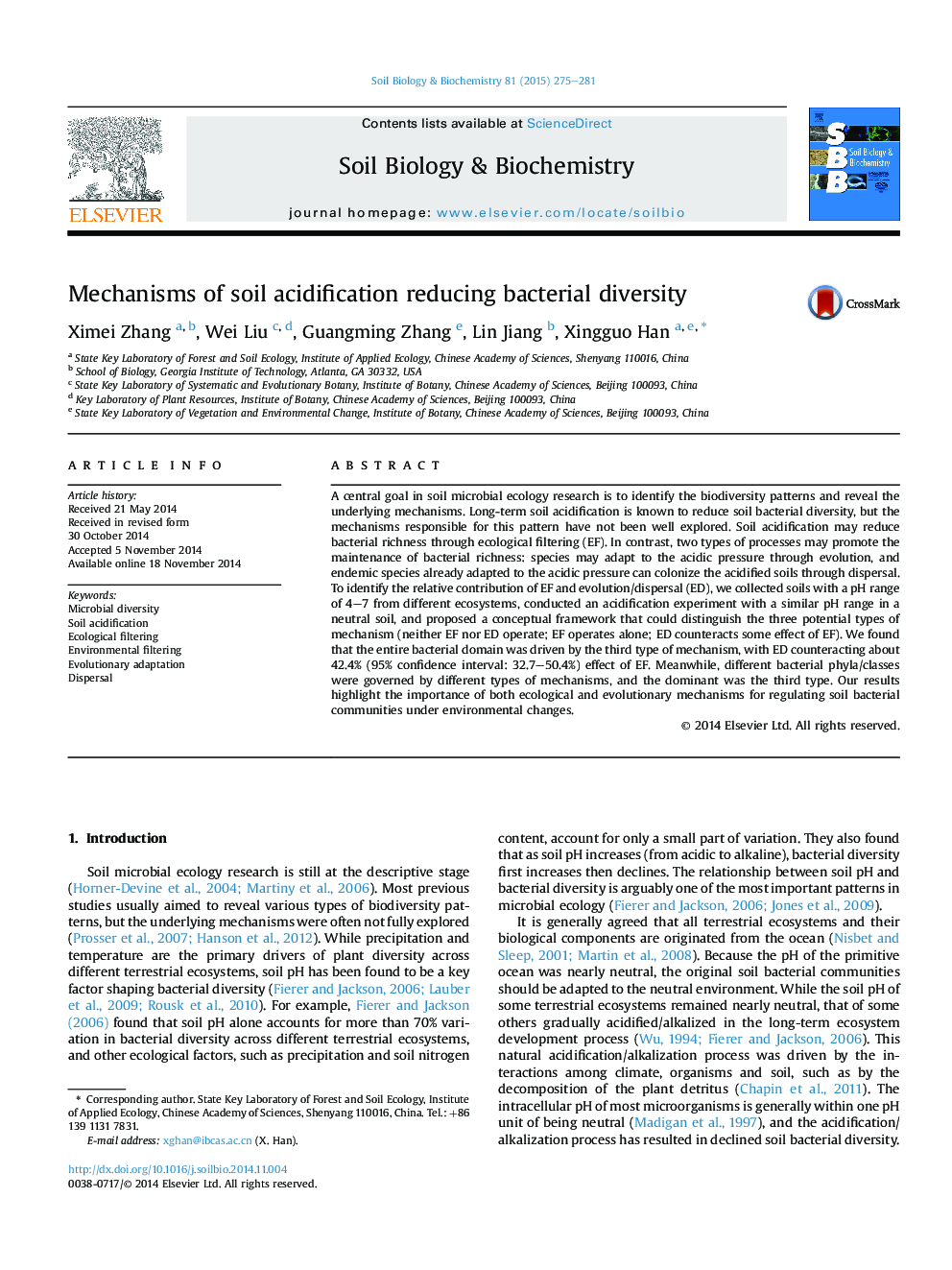| Article ID | Journal | Published Year | Pages | File Type |
|---|---|---|---|---|
| 2024439 | Soil Biology and Biochemistry | 2015 | 7 Pages |
•Ecological filtering and evolution/dispersal combine to drive microbial diversity.•A conceptual framework is proposed to differentiate three types of mechanism.•The dominant type is evolution/dispersal counteracting ecological filtering effect.•Organisms driven by ecological filtering alone is not adaptive evolutionarily.
A central goal in soil microbial ecology research is to identify the biodiversity patterns and reveal the underlying mechanisms. Long-term soil acidification is known to reduce soil bacterial diversity, but the mechanisms responsible for this pattern have not been well explored. Soil acidification may reduce bacterial richness through ecological filtering (EF). In contrast, two types of processes may promote the maintenance of bacterial richness: species may adapt to the acidic pressure through evolution, and endemic species already adapted to the acidic pressure can colonize the acidified soils through dispersal. To identify the relative contribution of EF and evolution/dispersal (ED), we collected soils with a pH range of 4–7 from different ecosystems, conducted an acidification experiment with a similar pH range in a neutral soil, and proposed a conceptual framework that could distinguish the three potential types of mechanism (neither EF nor ED operate; EF operates alone; ED counteracts some effect of EF). We found that the entire bacterial domain was driven by the third type of mechanism, with ED counteracting about 42.4% (95% confidence interval: 32.7–50.4%) effect of EF. Meanwhile, different bacterial phyla/classes were governed by different types of mechanisms, and the dominant was the third type. Our results highlight the importance of both ecological and evolutionary mechanisms for regulating soil bacterial communities under environmental changes.
